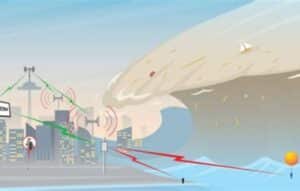The impact of the cars in the global economy
The cars Not only do they affect the environment, but they also have a significant economic impact worldwide. The automotive industry is one of the largest on the planet, generating millions of jobs and contributing significantly to the Gross Domestic Product (GDP) of many countries. Furthermore, cars are an important source of revenue for governments through fuel taxes, vehicle purchase taxes, and other usage-related levies.
The rising demand for electric and hybrid vehicles is beginning to change the structure of the industry, as more manufacturers focus on producing more efficient and eco-friendly models. This shift has also generated a new wave of innovation, with advances in batteries, fast-charging systems, and other technologies driving the adoption of cleaner cars.
The cost of the cars over time
The cost of owning a cars The cost of electric vehicles has increased considerably in recent years, not only due to the purchase price but also due to operating costs such as maintenance and fuel. As traditional cars become more expensive to operate due to higher fuel prices, electric and hybrid cars are beginning to appear more attractive from an economic perspective. Furthermore, electric vehicle maintenance is significantly lower than that of other vehicles.
Comparison of operating costs between cars traditional and electric
| Type of Car | Annual maintenance cost | Annual fuel cost | Estimated total annual cost |
|---|---|---|---|
| Internal combustion car | $800 – $1,200 | $1,500 – $2,500 | $2,300 – $3,700 |
| Hybrid car | $400 – $600 | $700 – $1,200 | $1,100 – $1,800 |
| Electric car | $200 – $400 | $400 – $700 | $600 – $1,100 |
The cars in everyday life
The cars are an essential part of daily life for many people. Whether for commuting to work, family trips, or leisure activities, cars provide great flexibility and convenience. However, the widespread use of cars It has also contributed to traffic congestion, air pollution and other urban problems.
To address these challenges, cities are beginning to adopt policies to promote more sustainable vehicle use, such as promoting public transportation, building electric vehicle infrastructure, and encouraging cycling and walking.
The future of the cars and smart cities
With the advent of the smart cities, the future of transportation is being reimagined. smart cities They seek to integrate innovative technologies to improve transportation efficiency, reduce emissions, and create a healthier environment for citizens. Autonomous cars, electric vehicles, and shared mobility solutions will play a key role in transforming the cities of the future.
Self-driving cars, for example, could reduce traffic congestion by enabling more efficient driving routes, while also improving safety by eliminating human error. Furthermore, the widespread adoption of electric cars would significantly contribute to reducing carbon emissions, which would help mitigate climate change.
See also:
- How to Prepare and Respond to the Threat of a Tsunami
- Earthquake Prevention and Monitoring
- Benefits of Exploring Nature with Technology
- The importance of GPS in everyday life
- Keeping Blood Pressure Under Control
Conclusion
The cars have profoundly changed the way people live and relate to their environment. They have revolutionized transportation, the economy, and daily life, but they have also brought with them environmental and social challenges that we must address. As technology continues to advance, cars of the future will be more efficient, sustainable and accessible, contributing to a cleaner and more connected world.





